What is cybernetics
Cybernetics — the science of the general laws of control processes and the transfer of information in machines, living organisms and their associations. Cybernetics is the theoretical foundation process automation.
The basic principles of cybernetics were formulated in 1948 by the American scientist Norbert Wiener in his book Cybernetics or Control and Communication in Machines and Living Organisms.
The emergence of cybernetics is conditioned, on the one hand, by the needs of practice, which posed the problem of creating complex automatic control devices, and, on the other hand, by the development of scientific disciplines that study control processes in various physical fields in preparation for the creation of a general theory of these processes.
Such sciences include: the theory of automatic control and tracking systems, the theory of electronic programmed computers, the statistical theory of message transmission, the theory of games and optimal solutions, etc., as well as a complex of biological sciences that study control processes in living nature (reflexology, genetics, etc.).
Unlike these sciences dealing with specific control processes, cybernetics studies the generality of all control processes, regardless of their physical nature, and sets as its task the creation of a unified theory of these processes.
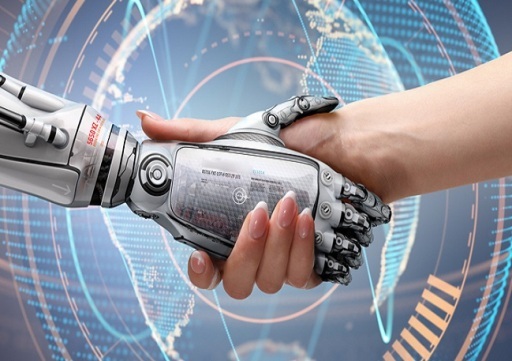
All management processes are characterized by:
-
the existence of an organized system consisting of leading and controlled (executive) bodies;
-
interaction of this organized system with the external environment, which is a source of random or systematic disturbances;
-
implementation of control based on the reception and transmission of information;
-
the presence of a goal and management algorithm.
Studying the problem of the natural-causal emergence of goal-directed control systems in living nature is an important task of cybernetics, which will allow a deeper understanding of the relationship between causality and purposefulness in living nature.
The task of cybernetics also includes a systematic comparative study of the structure and various physical principles of operation of control systems in terms of their ability to perceive and process information.
By its methods, cybernetics is a science that widely uses a variety of mathematical apparatuses, as well as a comparative approach in the study of various management processes.
The main divisions of cybernetics can be distinguished:
-
information theory;
-
theory of control methods (programming);
-
control systems theory.
Information theory studies the ways of perceiving, transforming and transmitting information.Information is transmitted using signals — physical processes in which certain parameters are unambiguously consistent with the transmitted information. Establishing such a correspondence is called coding.
The central concept of information theory is a measure of the amount of information, defined as the change in the degree of uncertainty in anticipation of some event, that is contained in the message before and after the message is received. This measure allows you to measure the amount of information in messages, similar to how the amount of energy or the amount of matter is measured in physics. The meaning and value of the transmitted information for the recipient is not taken into account.
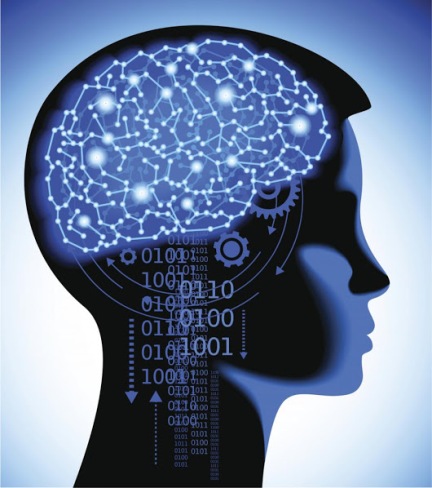
Programming theory deals with the study and development of methods for processing and using information for management. In general, programming the operation of any control system includes:
-
defining an algorithm for finding solutions;
-
compilation of a program into the code accepted by the given system.
Finding solutions is reduced to processing the given input information into the corresponding output information (control commands), which ensures the achievement of the set goals. It is performed based on some mathematical method presented in the form of an algorithm. The most advanced are mathematical methods for determining optimal solutions, such as linear programming and dynamic programming, as well as methods for developing statistical solutions in game theory.
Algorithm theory, used in cybernetics, studies formal ways of describing information processing processes in the form of conditional mathematical schemes — algorithms... The main place here is occupied by issues of building algorithms for different classes of processes and issues of identical (equivalent) algorithm transformations.
The main task of programming theory is to develop methods for automating information processing processes of electronic programmed machines. The main role here is played by questions about the automation of programming, that is, questions about compiling programs to solve various problems of machines with the help of these machines.
From the point of view of comparative analysis of information processing processes in various naturally and artificially organized systems, cybernetics distinguishes the following main classes of processes:
-
thinking and reflex activity of living organisms;
-
changes in hereditary information in the process of evolution of biological species;
-
information processing in automatic systems;
-
information processing in economic and administrative systems;
-
information processing in the process of science development.
Elucidating the general laws of these processes is one of the main tasks of cybernetics.
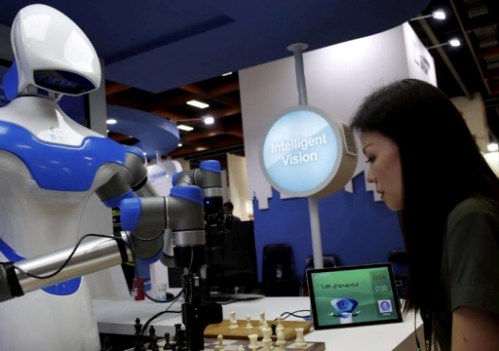
Theory of control systems studies the structure and principles of construction of such systems and their relationship with controlled systems and the external environment. In the general case, a control system can be called any physical object that performs purposeful information processing (the nervous system of an animal, an automatic system for controlling the movement of an airplane, etc.).
Theory of Automatic Control (TAU) — scientific discipline, the subject of which are the information processes taking place in automatic control systems. TAU reveals the general patterns of operation inherent in automatic systems with different physical implementations, and based on these patterns develops the principles for building high-quality control systems.
Cybernetics studies abstract control systems presented in the form of mathematical schemes (models) that preserve the informational properties of the corresponding classes of real systems. Within cybernetics, a special mathematical discipline arose — automata theory, which studies a special class of discrete information processing systems that include a large number of elements and simulate the work of neural networks.
Of great theoretical and practical importance is the elucidation of this basis of the mechanisms of thinking and the structure of the brain, which provide the possibility of perceiving and processing huge amounts of information in organs of small volume with negligible expenditure of energy and with extremely high reliability.
Cybernetics identifies two general principles of building control systems: feedback and multi-level (hierarchical) control. The principle of feedback allows the control system to constantly report the actual state of all controlled bodies and the real effects of the external environment. The multi-level control scheme ensures the economy and stability of the control system.
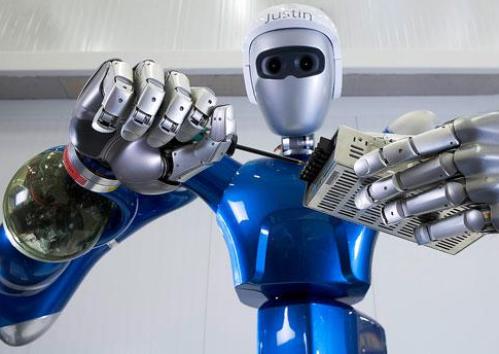
Cybernetics and process automation
Full automation, using the principles of self-tuning and self-learning systems, makes it possible to achieve the most profitable control modes, which is especially important for complex industries. A necessary prerequisite for such automation is the availability for a given production, process of a detailed mathematical description (mathematical model), which is entered into the computer that controls the process in the form of a program for its operation.
This machine receives information about the course of the process from various measuring devices and sensors, and the machine, based on the available mathematical model of the process, calculates its further course with certain control commands.
If such modeling and forecasting proceeds much faster than the real process, then it is possible to choose the most advantageous management mode by calculating and comparing a number of options. The evaluation and selection of options can be carried out both by the machine itself, fully automatically, and with the help of a human operator. An important role in this is played by the problem of optimal coupling of the human operator and the control machine.
Of great practical importance is the unified approach developed by cybernetics for the analysis and description (algorithmization) of various processes of management and information processing by sequentially dividing these processes into elementary actions that represent alternative choices ("yes" or "no" ).
The systematic application of this method makes it possible to formalize increasingly complex processes of mental activity, which is the first necessary stage for their subsequent automation.The problem of the information symbiosis of a machine and a person has great prospects for increasing the efficiency of scientific work, that is, the direct interaction of a person and an information-logical machine in the process of creativity in solving scientific problems.

Technical cybernetics — the science of managing technical systems. The methods and ideas of technical cybernetics initially developed in parallel and independently in separate technical disciplines related to communication and control — in automation, radio electronics, telecontrol, computer technology, etc. cybernetics, which forms a unified theoretical basis for all areas of communication and control technology.
Technical cybernetics, like cybernetics in general, studies control processes, regardless of the physical nature of the systems in which these processes occur. The central task of technical cybernetics is the synthesis of effective control algorithms in order to determine their structure, characteristics and parameters. Effective algorithms are understood as rules for processing input information into output control signals that are successful in a certain sense.
Technical cybernetics is closely related to automation and telemechanics, but does not coincide with them, since technical cybernetics does not consider the design of specific equipment. Technical cybernetics is also related to other areas of cybernetics, for example, information obtained from the biological sciences facilitates the development of new principles of control, including the principles of constructing new types of automata that simulate complex functions of human mental activity.
Technical cybernetics, arising from the needs of practice, widely using the mathematical apparatus, is now one of the most developed branches of cybernetics. Therefore, the progress of technical cybernetics contributes significantly to the development of other branches, directions and branches of cybernetics.
A significant place in technical cybernetics is the theory of optimal algorithms or, which is essentially the same, the theory of an optimal strategy for automatic control that provides an extremum of some optimality criterion.
In different cases, the optimality criteria may be different. For example, in one case, the maximum rate of transient processes may be required, in the other, the minimum spread of values of a certain quantity, etc. However, there are general methods for formulating and solving a wide variety of problems of this kind.
As a result of solving the problem, the optimal control algorithm in the automatic system or the optimal algorithm for recognizing signals against the background of noise in the receiver of the communication system, etc. is determined.
Another important direction in technical cybernetics is the development of the theory and principles of operation of systems with automatic adaptation, which consists in a purposeful change in the properties of a system or its parts, ensuring the increasing success of its actions. In this field, automatic optimization systems brought by automatic search to the optimal mode of operation and maintained close to this mode under unforeseen external influences are of great importance.
The third area is the development theory of complex control systems, consisting of a large number of elements, including complex interrelationships of parts and work in difficult conditions.
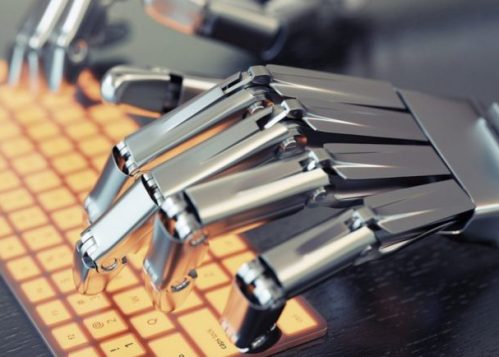
The theory of information and the theory of algorithms are of great importance, in particular, to the technical cybernetics theory of finite state machines.
Finite automata theory deals with the synthesis of automata under given operating conditions, including solving the black box problem — determining a possible internal structure of an automaton based on the results of studying its inputs and outputs, as well as other problems, for example questions about the feasibility of automata of a certain type.
All management systems are related in some way to the person who designs, sets up, controls, directs their work and uses the results of the systems for their own purposes. Therefore, there are problems of human interaction with a complex of automatic devices and the exchange of information between them.
Solving these problems is necessary to relieve the human nervous system from stressful and routine work and to ensure maximum efficiency of the entire "man-machine" system. The most important task of technical cybernetics is to simulate increasingly complex forms of human mental activity with the goal of replacing humans with automatic machines wherever possible and reasonable. Therefore, in technical cybernetics, theories and principles are developed to build different types of learning systems that, through training or learning, purposefully change their algorithm.
Cybernetics of power systems — scientific application of cybernetics to solve control problems power systems, regulation of their regimes and identification of technical and economic characteristics during design and operation.
Individual elements of the power system interacting with each other have very deep internal connections that do not allow the system to be divided into independent components and, when determining its characteristics, to change the influencing factors one by one. According to the research methodology, the power system should be considered as a cybernetic system, since its research uses generalizing methods: similarity theory, physical, mathematical, numerical and logical modeling.
For more details see here:Cybernetics of electrical systems
